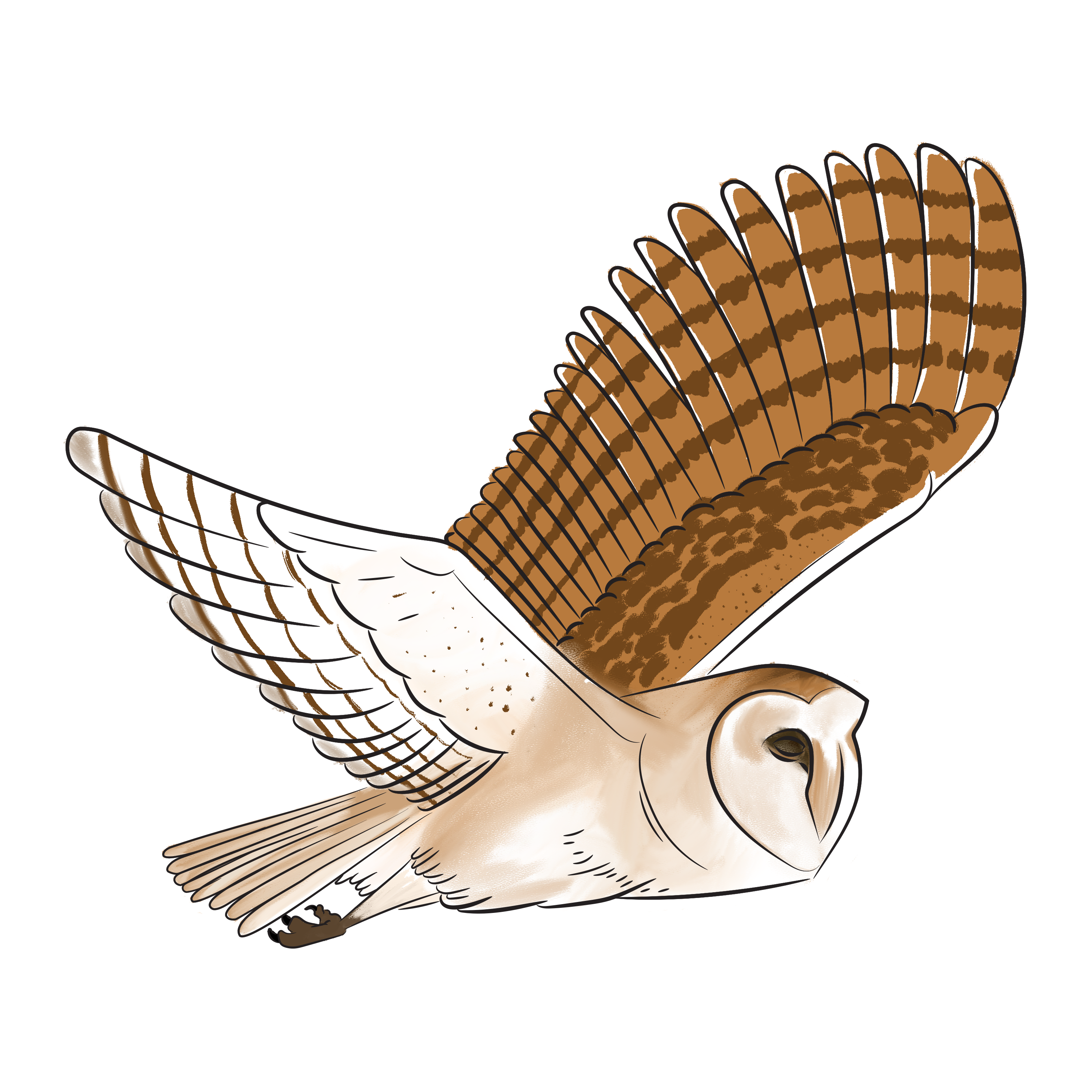
Perched on progress: An Owl's guide to documenting your career growth
By Erica Beyea on Writing docs, Support from June 20, 2023
Owls have famously impressive eyesight, and we’d like to help others see the great work our customers do.
Many KnowledgeOwl customers work directly with their own customers in support or success roles (what we'll broadly refer to here as CX).
Knowing how important service is to any company, we also know how upper management doesn’t always give it the recognition it deserves. Often this is just because they don’t see the hard work it involves, or only hear about it when something goes wrong.
If you’re already a KnowledgeOwl customer, you already know the importance of good documentation. It allows you to answer questions quickly and confidently, providing reliable information to your customers and your teammates.
But documentation is also crucial in making sure your work is seen. With a neverending stream of customers to help, it can be easy to miss the consistent growth you’re experiencing in your career.
Very often, people start with this documentation by keeping track of Key Performance Indicators like NPS scores and CSATs and combining them with operational metrics. That's generally good advice, as far as it goes. You can demonstrate impact by showing high customer satisfaction scores next to reduced churn numbers. These kinds of data next to each other can illustrate a clear image to management.
But I encourage you to go beyond that, to document the 'invisible' work your team does. Do you process chargebacks, write bug reports, meet with other departments to discuss customer trends, or manage your knowledge bases? Be sure to log what you do and how it could impact the business overall. As the saying goes: docs or it didn't happen!
Linus Says: Your knowledge base software can track some of this work and its impact. Here at KnowledgeOwl, we have a Reporting area of your knowledge base. You can see what articles have been read and how many times they’ve been read. This translates into time saved tracking down answers, or asking questions.
The best piece of career advice I received was to document everything I had learned and done in my current role.
I was working in Customer Experience, mostly in Support, at that time. I had been in the same position for a few years and my job had begun to feel a bit like Groundhog Day. My day consisted mostly of replying to customers, managing billing, and writing bug reports.
However, when I started to write down what I did, I realized there was a lot more to my role than I was seeing: deep triaging, contributing to internal and external knowledge bases, assisting with various customer success projects, and working directly with the research and product teams. I had developed a lot of new skills that were quite valuable.
Soon after I documented my accomplishments, my team needed a new manager. Thanks to my list, I immediately felt confident in applying for the role - and I believe it is largely why I did receive the promotion. I was able to hand over a clear list of the impact I’d had and the variety of projects I’d worked on. I also built up a lot of confidence by pointing out to myself what I’d done over the years.
In that new role, I continued the habit of writing down what I was doing every week. It came in handy for demonstrating to management what I was working on, and it helped alleviate any sense of imposter syndrome that would try to sneak up.
Finally, this led to me feeling confident to apply as the Lead Success Owl here at KnowledgeOwl. I am sure I would not have had the courage to apply had it not been for my ongoing documentation of moments I was proud of. It led directly to working this absolute dream job for this absolute dream company.
Since we want everyone to get to follow their dreams into roles and companies that work for them, here are some tips on how to approach documenting your professional development:
First, pick a tool that's familiar and easy for you, like a Google Doc or Word file. To start, things will likely look pretty messy. The important part is to just write things down. You can clean up and edit things later.
And what to put into this document? Well, there are a few key categories you can cover:
The tools you use
It’s easy to forget what a firehose of tools you likely faced when starting your first CX job. So many of them become second nature, and others you use so infrequently that it's easy to forget that you use them at all. Using Slack may not feel like a big accomplishment, but having an existing familiarity with it is very useful in almost any job.
Create a document called “Tools I use” or something similar that you can continually add to.
To start the list, ask yourself: what tools do I use for the following aspects of my job:
- Communication with customers
- Project management
- Bug reports/feature requests
- Internal or external knowledge docs
- Payment or billing systems
- Screenshots or screen recordings
- Third-party email apps (contact forms, etc)
- Customer experience tracking tools like FullStory
- Command Line Interface (like Terminal)
- Google Drive / Microsoft Office
Anytime you find yourself opening a new tool at work, open up your doc and add that tool to the list.
The content you create
Next, try to answer: what kind of content am I creating in my job?
There are replies to customers of course, but often you're creating far more content than you're aware of. For example:
- Are you also writing and submitting bug tickets?
- Do you create videos to explain technical issues to customers or devs?
- Are you adding to your company’s knowledge bases, internal or external?
- Have you helped create documents that help new hires?
Chances are that you’re creating more things than you realize - and even if it is just a limited amount of things, have a think about the different ways your work might be being used.
Getting all of it written down can show you just how much of a documentarian you really are--even if you don't already realize it!
The people you interact with
Next question: Who do you work with, and how?
It’s quite likely you interact daily with the rest of your CX team, and human interactions are one of the often-overlooked intangibles of the work we all do:
- What are those interactions like?
- Do you jump in to help a colleague with a tough ticket or customer?
- How are you communicating customer needs to the rest of the company?
- Do you contact your dev team when a nasty bug that needs faster attention pops up?
- Does your team meet with the Product team to offer customer perspective on upcoming features?
- Have you helped explain things to the Marketing team?
- Do you tag your tickets to help the Research team get better insights on customer requests?
- Have you helped with the training of new hires on your team?
It would be pretty difficult to give customer support in a complete silo, so you’re likely communicating with other teams in your company. Think about even the smallest or most distant interactions you might have with other teams, and write those down. Don’t edit yet either - even if it doesn’t feel too impactful, write it down.
Soft skills you’ve grown
This might be the hardest one to quantify but it is vital. Think about what makes you good at your job - often it combines empathy, curiosity, and communication skills. Try to paint in less broad strokes, though. Think about how these traits might manifest in actions you take.
Some ideas include:
- Troubleshooting complicated tickets
- Finding creative workarounds
- Turning a negative customer experience into a positive one
- Helping your teammates out when they’re struggling
As a hiring manager, these were often the skills that mattered most to me. In interviews, I looked for candidates to illustrate examples of these traits. I knew that if someone demonstrated care for customers and coworkers, as well as a keen sense of curiosity and creativity, then they would be successful in the position.
Continuing to track your growth
After you’ve created these documents listing what you’ve done so far, create a fifth document that tracks what you’re doing each week.
Every Friday afternoon, take 15 minutes and track what you did each week.
A quick summary might look like this:
- Wrote 5 bug reports
- Met with the CX team
- Attended the Product team’s presentation
- Replied to 95 tickets
- Solved a confusing billing issue.
However, if you continue documenting these, you’ll find some standalone things you might have missed otherwise, like creating training documentation, meeting with your manager to discuss how the team's KPIs are relating to company growth, helping organize a staff event, providing feedback to marketing, and so on.
Every three months, review the weekly updates you’ve made and add anything new to the main four documents. You’ll be surprised how what might feel repetitive at the moment turns out to be building a wealth of new knowledge and skills.
As a bonus, when your yearly review comes around, you’ll be ready to make a case for advancement or better compensation as well. You can be sure your manager will be able to see the valuable contributions you’re making - and you may also find yourself inspired to look for new opportunities for professional growth.
If you have other self-documenting tips for success, we'd love to hear them to update this post or for future posts. After all, #docsoritdidnthappen!


Writing docs
(253)

General posts useful to all documentarians about writing documentation, editing and publishing workflows, and more.


Feature spotlight
(15)

Your flight plan for how to get the most out of KnowledgeOwl features and integrate them into your workflows.


Announcements
(21)

Major KnowledgeOwl company announcements.


Customer stories
(9)

Learn how others are using KnowledgeOwl & get pro tips on how to make the most of KO!


Company culture
(40)

Find out more about who we are and what we value.


Support
(75)

We believe good support is the foundation of good business. Learn about support tools and methodology.


Tools
(64)

Learn more about tools to solve various documentarian issues, within and beyond KnowledgeOwl.


All
(384)

Not sure what category you need? Browse all the posts on our blog.

Got an idea for a post you'd like to read...or write?
We're always looking for guest bloggers.
Learn moreStart building your knowledge base today
- 30 days free (and easy to extend!)
- No credit card required
- Affordable, transparent pricing
- No cost for readers, only authors
Want to see it in action?
Watch a 5-minute video and schedule time to speak with one of our owls.


